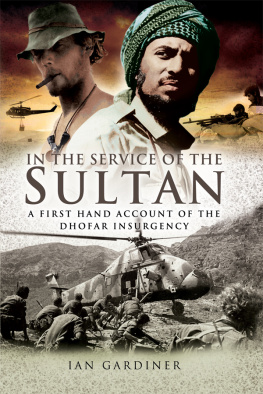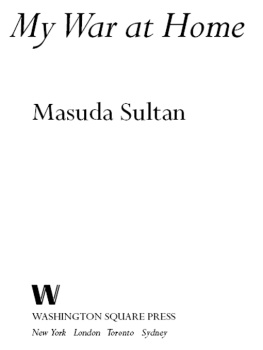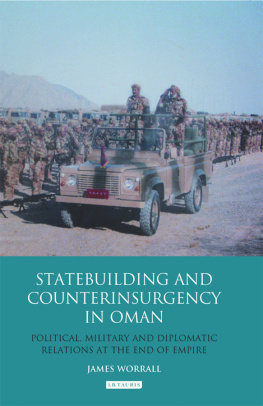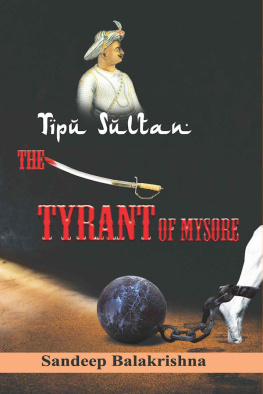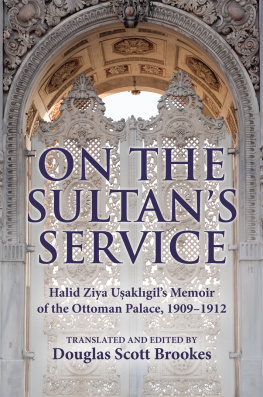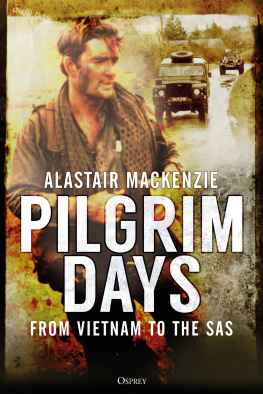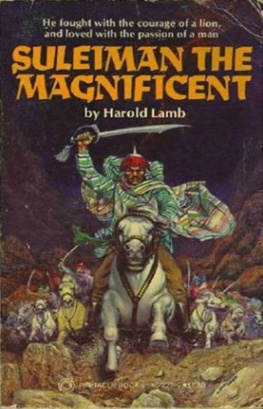Pagebreaks of the print version

In the Service of
the Sultan
In the Service of the Sultan
A First Hand Account of the Dhofar Insurgency
Ian Gardiner

Pen & Sword
MILITARY
First published in Great Britain in 2006 and reprinted in
2006, 2008, 2009, 2010, 2011 by
Pen & Sword Military
an imprint of
Pen & Sword Books Ltd
47 Church Street
Barnsley
South Yorkshire
S70 2AS
Copyright Ian Gardiner
ISBN 978 18 4415 467 8
eISBN 978 18 4884 990 7
Mobi ISBN 978 18 4884 991 4
The right of Ian Gardiner to be identified as Author of this Work has been asserted by him in accordance with the Copyright, Designs and Patents Act 1988.
A CIP catalogue record for this book is available from the British Library
All rights reserved. No part of this book may be reproduced or transmitted in any form or by any means, electronic or mechanical including photocopying, recording or by any information storage and retrieval system, without permission from the Publisher in writing
For a complete list of Pen & Sword titles please contact
PEN & SWORD BOOKS LIMITED
47 Church Street, Barnsley, South Yorkshire, S70 2AS, England
E-mail:
Website: www.pen-and-sword.co.uk
Dedicated to the soldiers sailors and airmen of the many nations who
fought in the Dhofar War 1965-1975, and remembering especially
Corporal Hamid Khamis Salim Al Rasibi
killed in action on 13 March 1974
and
Major Johnny Braddell-Smith
killed in action on 25 December 1974.
Maps
Map 1South East Arabia
Map 2Dhofar
Map 3The Hornbeam Line
Foreword
On a typically sunny Dhofar day in 2004 I drove out of the gates of Salalah airfield with my good friend and colleague, Air Vice-Marshal Yahyah bin Rashid al Juma, Commander of the Royal Air Force of Oman. Immediately we found ourselves in the streets of a busy, bustling town. As I gazed around at the people thronging the byways, and at the burgeoning prosperity that was so much in evidence, my thoughts slipped back some thirty years, to a time when both I and my surroundings looked very different.
I first set foot in Salalah towards the end of 1973, as a newly arrived loan service officer in the Sultan of Omans Air Force. It was my first experience of the country and the region where I was to spend the better part of the next two years. In those days it was a drive of some distance, along dirt tracks and potholed roads, from the airfield to the small and impoverished fishing village of Salalah. My colleagues and I used to take this route on our sporadic days off, driving our minimokes in pursuit of a little beach solitude as a break from the intense environment of an airbase in the middle of a war zone. The few houses in the village were strung along the shore, and looked as they might have done for the past couple of hundred years. There were few vehicles; donkeys were a far more common sight. There was little of the 20th century apparent in this scene, and while it might have been picturesque for the visitor, it did not seem to hold great prospects for the inhabitants.
And yet and yet there I was in 2004 looking at a modern Omani town with a strong economy and underpinning infrastructure, and at lively, friendly people who clearly faced the future with confidence. What a change over the intervening decades. As I took in the scene, I thought of those who had fought in this region in the 1970s of the colleagues who were now full of years, and of those who never had the chance to grow older, and for whom Dhofar was the last battle and it seemed to me that the people of Salalah in the 21st century were our justification and our vindication. The lives that they were able to lead, and the promise the future held for them and their children, followed on from our success in the Dhofar War.
Military action on its own could not achieve this success. Yes, it was essential in achieving the conditions within which the other elements of state power could be brought to bear. But without the political initiatives and civil aid programmes set in hand by His Majesty The Sultan, the efforts of the Armed Forces would, at the last, have been in vain. The successful coordination of the military campaign with the many other strands of activity was the real secret of our victory; an approach which we continue to build on today.
So this book is more than just a fascinating tale about a little known war a conflict that, to those who noticed it at all, seemed a marginal affair on the fringes of the Cold War that overshadowed all else. The picture that it paints and the incidents that it relates certainly provide us with a marvellous insight into the location and period; but it is not just of historical interest. It is the story of people who had to deal with the kinds of problems that are only too relevant to us today. And it is the story of how they, great and small, solved those problems and helped to create a future for a nation.
JOCK STIRRUP
Air Chief Marshal, GCB, AFC, ADC, FRAeS, FCMI, RAF,
Chief of the United Kingdom Defence Staff
Acknowledgements
Memories mine and others have been the principal sources for this book, but I have been fortunate to have a number of handrails to lean on for accurate factual and chronological background.
I have drawn on the unpublished dissertation, Britain and Oman: the Dhofar War and its Significance , written by Lieutenant Colonel John McKeown, Royal Engineers for his Master of Philosophy degree from Cambridge University. Oman before 1970 by Ian Skeet was also a most useful reference.
For overall context, and in particular the course of the war from November 1974 until its conclusion in December 1975, General Sir John Akehursts book We Won a War has been invaluable.
The late General Sir Timothy Creasey delivered a presentation on the Dhofar War to the Army Staff College at Camberley each year for a number of years after the war. I am grateful to Major General Angus Ramsay who supplied me with a copy of the script of that presentation and other associated papers.
One memory on its own is an unreliable witness. It is debatable whether twenty memories are much better, but at least through consulting some of my brother officers in the Northern Frontier Regiment and others who served in Oman at the same time, the book is more complete than it otherwise might have been. It would be a poor anorexic thing if I had relied solely on what I alone remembered. I am therefore grateful to Bryan Ray, Angus Ramsay, Viv Rowe, Nick Knollys, Chris Barnes, Charlie Daniel, Tony Willis, Mike Kingscote and the late David Nicholls, all of the Northern Frontier Regiment, for jogging my brain cells; and for the loan of theirs.
I am also indebted to Ian Gordon of the Muscat Regiment, and Roger Jones, David Sayers, Mike Austen and David Daniels of the , Donal Douglas and Peter Isaacs of the Frontier Force, and Peter Sincock of Dhofar Brigade Headquarters all contributed important insights which enriched the book. The wise advice of Air Vice-Marshal Yahyah bin Rashid al Juma was invaluable. I thank all these gentlemen, furthermore, for the lie detector service that they performed on the parts of the book which they read during its gestation.
My thanks are also due to Air Chief Marshal Sir Jock Stirrup for kindly writing the foreword.
What more engaged and concerned auditors of ones work can one have than ones own family? Mine scrutinized this book and offered many valuable suggestions. With all its imperfections, it would have been a deal more imperfect without the help of my wife Louise and our children, Catriona and Angus.

